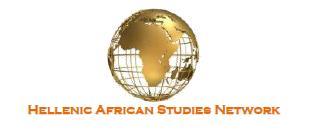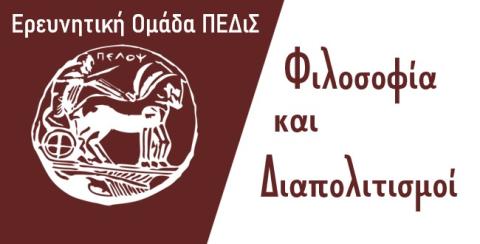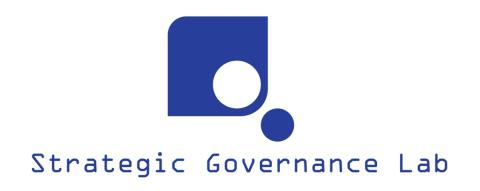
The following research groups are active within the department, by approval of the department’s General Assembly (in alphabetical order):
Consortium for the Promotion of Chinese-Greek and Chinese-European Relations

The Consortium for the Promotion of Sino-Greek and Sino-European Relations is a formal cooperation network of four Greek research and educational institutions: 1. The Hellenic Center for European Studies (Ministry of Foreign Affairs of the Hellenic Republic), 2. The Institute of International Economic Relations (Athens), 3. The University of the Aegean (Department of Mediterranean Studies), 4. The University of the Peloponnese (Department of Political Science & International Relations and Department of Economics).The Consortium aims at monitoring and promoting cooperation between Greek and Chinese stakeholders, both on the business sphere and among academics; offering insight on the evolution and the prospects of EU-Chinese relations; understanding China’s views on international affairs and its relations with Europe and the rest of the world.
Hellenic African Studies Network

The Hellenic African Studies Network is a collaboration between the University of the Peloponnese and the University of the Aegean) and aims at linking up Greek speaking scientists with considerable interests and research experience in the African continent. One of the Network’s principal functions is to offer consultative services to state and private entities by pooling together the expertise of its members.
Team Coordinator: Konstantinos Magliveras, Professor, University of the Aegean
Group Coordinator: Konstantinos Magliveras, Professor, Aegean University
email: hellenicafricanstudies@uop.gr
Hellenic Network for the Study of the Third Sector
It was created by PSIR and the Department of Political Science and Public Administration of the University of Athens.
Research Group "Monitoring European Policies and Programmes"
The research team focuses on the monitoring of various European policies and how they translate into specific programmes and calls for proposals. The aim of the group is (a) to collect and study the main European programmes at programme period level as well as the main European texts on which these programmes are based, (b) to map and familiarise with specific, thematic, programmes such as Erasmus+, AMIF, CERV, etc., (c) to monitor and analyse calls for proposals for relevant European programmes and (d) to pilot the writing of proposals for relevant calls.
Research Group "Philosophy and Interculturalism"

The group "Philosophy and Interculturalism" (formely -until January 2025- named "Philosophy, culture and social practices") was created by professors B. Lalagianni and D. Rozakis, in 2016. It is an interdisciplinary group, active in the broader field of philosophy, culture and related social practices. The group aims (a) to develop and implement research projects and (b) to disseminate research results through scientific publications and the participation of its members in Greek and international workshops and conferences. The Group may include and collaborate with: faculty members, visiting researchers, post-doctoral and doctoral candidates, postgraduate and undergraduate students.
Research Group "Political Leadership"
The aim of the research group is to highlight the concept of Leadership as a distinct issue of study in the field of Political Science with particular relevance for the analysis of the functioning of political systems and institutions (governments, parties, parliaments, etc.). The research team will build on a strong theoretical framework, as derived from the international literature, and explore the analytical utility of political leadership in different fields of study of the political phenomenon.
The research team will seek collaboration with research groups in the Department, as well as research groups with a similar focus active in universities and research centres abroad.
The research outputs of the team include a series of analytical texts on political leadership with a focus on evaluating the theoretical and empirical evidence that substantiates cases of leadership.
Research Group "Political Technology"
Political Technology is a research group active in the area of Policy Analysis with a multidisciplinary research agenda. Political Technology’s aim is to identify, research and develop institutional, procedural and technological ‘instruments’ for efficient and effective policy making and implementation are all levels of Governance and Public Sector Management.
The research group Political Technology was founded in 2009 by the late Professor Nikitas-Spiros Koutsoukis.
Strategic Governance Lab

The Strategic Governance Lab has the following objectives:
-
Conducting in-depth research to analyze and understand modern challenges, trends, and opportunities in governance.
-
Developing innovative governance strategies and solutions applicable to various fields, including the public, private, and non-profit sectors.
-
Offering educational programs to enhance the capacity of individuals and organizations in the field of strategic governance.
To achieve these objectives, it establishes partnerships with policymakers and stakeholders for the research, development, and implementation of governance strategies at the local, national, and international levels. In the same context, it seeks multi-level collaboration between academia, the public and private sectors, and civil society to collectively address governance issues.
As part of fostering synergies between the academic and business communities, the Strategic Thinking Lab platform has been created.
Strategic Thinking Lab Website [☍]
Research Group "Study of South-East Europe"
Within the framework of the Centre for Policy Analysis, a Southeast European Research Unit (SEER-Unit) was established.The aim of the research unit is to study contemporary political and socio-economic developments in Southeast Europe, with emphasis on the management of the persistent security problems that plague the region and the integration of all Southeast European countries into the Euro-Atlantic institutions. The SEER-Unit consists of faculty members, postdoctoral researchers, doctoral candidates, postgraduate and undergraduate students of the Department of Political Science and International Relations with relevant and related scientific interests to its field of activity. The research group contributes to the training of undergraduate and postgraduate students and doctoral candidates in basic and applied research in the field of area studies with a focus on South-Eastern Europe. The research results of SEER-Unit will be presented in an annual workshop and in published research studies.
